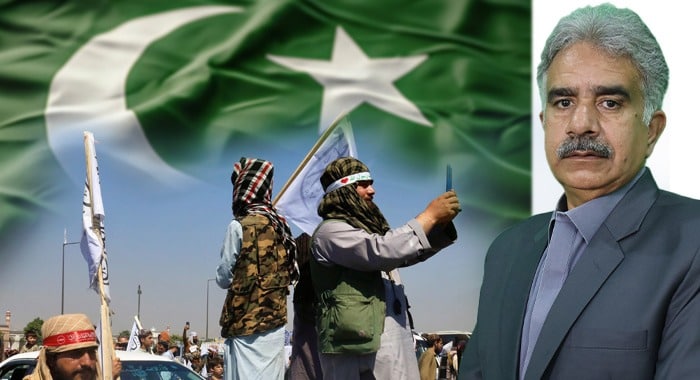Zahir Shah Sherazi
Pakistan has secured a remarkable diplomatic breakthrough at the United Nations by being entrusted with the vice-chairmanship of the UN Counter terrorism Committee and the chairmanship of the committee responsible for overseeing sanctions related to Afghanistan, the Taliban, and other designated groups. This achievement is not only a recognition of Pakistan’s longstanding role in global counter terrorism efforts but also a powerful rebuttal to the malicious propaganda consistently pushed by Indian state institutions.
Pakistan’s ascension to these critical leadership roles must be examined through both global and regional lenses. Internationally, this recognition reaffirms Pakistan’s position as a front line state in the war against terrorism. No country has sacrificed more in blood and treasure than Pakistan in the past two decades. Our people, security forces, law enforcement agencies, and economy have borne the brunt of extremist violence, while we fought a war that many powers only observed from a distance.
The selection of Pakistan for these roles signifies a belated but vital acknowledgement by the international community particularly the UN Security Council of Pakistan’s unique experience and competence in combating terrorism. While other countries have focused on political narratives, Pakistan has led from the front lines, rooting out terrorist sanctuaries from its tribal regions and undertaking massive de-radicalisation efforts. Today, leading universities across the world are studying Pakistan’s counter terrorism strategies as models of post-conflict stabilisation.
Regionally, this development is equally significant. For too long, India has tried to paint Pakistan as a state sponsor of terrorism, weaponizing incidents like Pulwama, Pathankot, and the Mumbai attacks to push its narrative globally. However, the tide is turning. Recent anti-Modi protests in cities like New York and Washington, where chants of “Modi Murdabad” and “Khalistan Zindabad” echoed through the streets, reveal a growing awareness in the West about India’s own descent into authoritarianism and state-sponsored violence.
Moreover, India’s brazen use of extrajudicial killings abroad as evidenced by incidents in Canada and the U.S has exposed its dangerous ambitions. Even a former Canadian Prime Minister has gone on record condemning India’s actions. In contrast, Pakistan’s elevation at the UN positions it to highlight and counter this form of state terrorism from a legitimate global platform.
With leadership of the sanctions committee, Pakistan will now oversee decisions involving the freezing and unfreezing of assets, the imposition or lifting of sanctions, and restrictions on the travel of designated individuals. These powers provide Pakistan with an authoritative role in shaping counter terrorism policy in South and Central Asia. This is especially crucial as the region confronts new threats from groups like the Islamic State Khorasan Province (ISKP) a group that many intelligence veterans and think tanks, including former CIA officer Alice G. Wells, believe emerged as a by-product of U.S. strategic decisions in the region.
This brings us to the critical question of Pakistan-U.S. cooperation. While American think tanks now suggest that Islamabad and Washington should prioritise trade and counter terrorism over ideological divergences, history teaches us to be cautious. The U.S has traditionally used regional actors to serve its geopolitical interests—whether during the Soviet invasion of Afghanistan under the guise of jihad, or the post-9/11 war on terror that restructured the entire region.
Now, with the U.S. pivoting toward containing China and embracing India as a strategic partner, Pakistan must rely on regional cooperation for its security and economic goals. The current American posture shows little appetite for aiding Pakistan beyond transactional intelligence sharing. The region must now turn inward to Pakistan, Afghanistan, and China to forge a new trilateral front against terrorism.
Encouragingly, there are signs of diplomatic maturity emerging in Kabul. Following engagement from Pakistan and China, the Taliban’s supreme leader Hibatullah Akhundzada issued a clear directive forbidding any action against Pakistan without his explicit approval. More recently, the Afghan Foreign Ministry went a step further, issuing a Shariah-based fatwa that declared any armed activity against Pakistan or any Muslim country as fasad (anarchy) rather than jihad. This policy shift is a monumental step forward and a major diplomatic success for Islamabad.
As Pakistan resumes its diplomatic outreach, there are confirmed reports of the Taliban cracking down on rogue elements, including both Afghan and Pakistani nationals attempting to sabotage regional stability. This marks a decisive moment for both countries. The future of counter terrorism in this region does not lie in foreign drone strikes or lectures from think tanks, but in robust regional consensus, shared intelligence, and mutual respect.
Pakistan’s elevation at the UN is more than ceremonial. It is a strategic victory. It enables Islamabad to actively shape the global counter terrorism narrative, push back against Indian disinformation, and lay the groundwork for regional peace and security.
It is now imperative that Pakistan fully capitalises on this opportunity by strengthening its diplomatic engagements, investing in regional trust building, and continuing to showcase the legitimacy of its counter terrorism narrative one built on sacrifice, resilience, and an unshakeable commitment to global peace.





